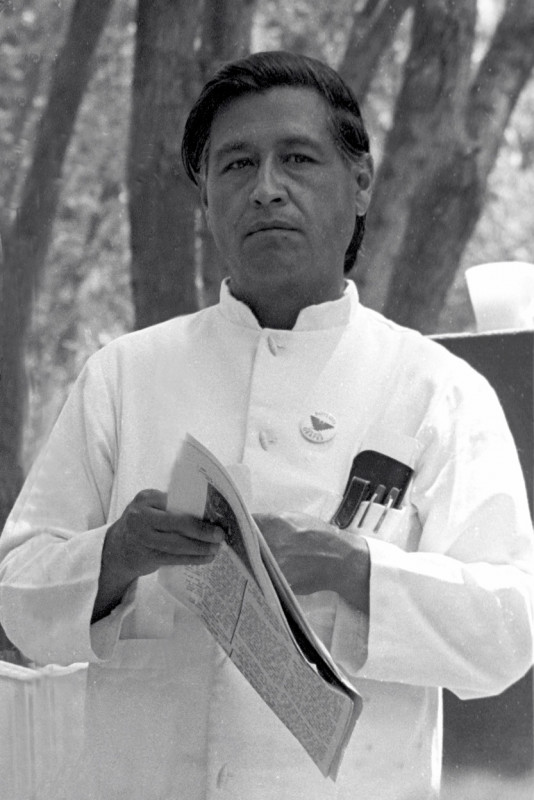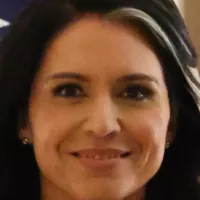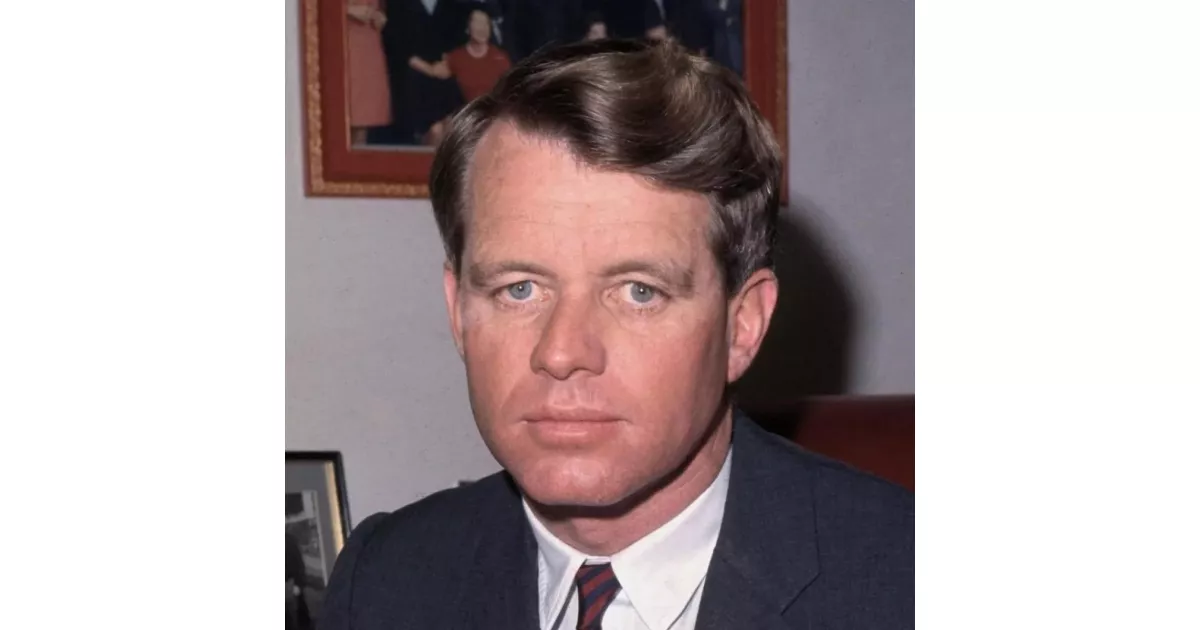Robert F. Kennedy (RFK) was a prominent American politician and lawyer. He served as the 64th U.S. Attorney General from 1961 to 1964 and as a U.S. Senator from New York from 1965 until his assassination in 1968. At the time of his death, he was a leading candidate for the Democratic presidential nomination. Like his brothers, John and Ted, RFK was a key figure in the Democratic Party and a symbol of modern American liberalism.
1918: Migratory Bird Treaty Act of 1918
In 1961, as attorney general, Kennedy targeted prominent Mafia leaders like Carlos Marcello and Joey Aiuppa; Aiuppa was convicted of violating of the Migratory Bird Treaty Act of 1918.
November 20, 1925: Robert F. Kennedy Born
Robert Francis Kennedy, also known as RFK, was born on November 20, 1925. He later became an American politician and lawyer, serving as the 64th United States Attorney General and a U.S. Senator from New York.
1938: Family Moved to London
In 1938, Robert F. Kennedy's family moved to London, where his father served as the U.S. ambassador to the Court of St James's.
1940: Kennedy Family Returned to US
In 1940, the Kennedy family returned to the United States just before the outbreak of World War II in Europe.
September 1942: Attended Milton Academy
In September 1942, Robert F. Kennedy attended Milton Academy, a preparatory school near Boston, Massachusetts, for 11th and 12th grades.
1943: Enlisted in US Naval Reserve
In 1943, six weeks before his 18th birthday, Robert F. Kennedy enlisted in the United States Naval Reserve as a seaman apprentice.
March 1944: Released from Active Duty
In March 1944, Robert Kennedy was released from active duty and left Milton Academy early to report to the V-12 Navy College Training Program at Harvard College.
May 1944: Graduation from Milton Academy
Robert F. Kennedy graduated from Milton Academy in May 1944.
August 1944: Death of Joseph Kennedy Jr.
In August 1944, Robert Kennedy's oldest brother, Joseph Jr., died when his bomber exploded during a volunteer mission known as Operation Aphrodite. This profoundly affected Robert and his family.
November 1944: Relocated to Bates College
In November 1944, Robert Kennedy was relocated to Bates College in Lewiston, Maine from Harvard.
June 1945: Returned to Harvard
Robert Kennedy returned to Harvard in June 1945 after attending Bates College.
December 15, 1945: USS Joseph P. Kennedy Jr. Commissioned
On December 15, 1945, the U.S. Navy commissioned the destroyer USS Joseph P. Kennedy Jr., named after Robert's deceased brother.
December 1945: Meeting Ethel Skakel
In December 1945, Robert F. Kennedy met Ethel Skakel during a skiing trip to Mont Tremblant Resort in Quebec, Canada.
January 1946: Completed Post Training Requirements
In January 1946, Robert Kennedy completed his post-training requirements at Harvard.
February 1, 1946: Served on USS Joseph P. Kennedy Jr.
On February 1, 1946, Robert Kennedy served aboard the USS Joseph P. Kennedy Jr. as a seaman apprentice on the ship's shakedown cruise in the Caribbean.
May 30, 1946: Honorable Discharge From Navy
On May 30, 1946, Robert Kennedy received his honorable discharge from the Navy. He was eligible for the American Campaign Medal and the World War II Victory Medal.
1946: Active in John's Campaign
Throughout 1946, Robert Kennedy became active in his brother John's campaign for the U.S. House seat vacated by James Michael Curley.
June 1948: Reported on the Berlin Blockade
In June 1948, Robert F. Kennedy, working as a correspondent for The Boston Post, reported on the Berlin Blockade.
September 1948: Enrolled at University of Virginia
In September 1948, Robert F. Kennedy enrolled at the University of Virginia School of Law in Charlottesville.
1948: Graduated from Harvard
In 1948, Robert Kennedy graduated from Harvard with a bachelor's degree in political science.
June 17, 1950: Marriage to Ethel Skakel
On June 17, 1950, Robert F. Kennedy married Ethel Skakel at St. Mary's Catholic Church in Greenwich, Connecticut. They had met on a skiing trip in December 1945 and would later have 11 children together.
June 1951: Graduated From Law School
In June 1951, Robert F. Kennedy graduated from law school, finishing 56th in a class of 125.
1951: Birth of Kathleen Kennedy
In 1951, Kathleen Kennedy, Robert and Ethel Kennedy's first child, was born.
1951: Admitted to Massachusetts Bar
In 1951, Robert Kennedy was admitted to the Massachusetts Bar and started work as a lawyer in the Internal Security Division of the U.S. Department of Justice.
February 1952: Transferred to Criminal Division
In February 1952, Robert Kennedy was transferred to the Criminal Division to help prepare fraud cases against former officials of the Truman administration before a Brooklyn grand jury.
June 6, 1952: Resigned to Manage Senate Campaign
On June 6, 1952, Robert Kennedy resigned from his position in the Criminal Division of the Justice Department to manage his brother John's U.S. Senate campaign in Massachusetts.
December 1952: Appointed Assistant Counsel
In December 1952, Robert Kennedy was appointed as one of 15 assistant counsel to the U.S. Senate Permanent Subcommittee on Investigations by Senator Joseph McCarthy.
1952: Birth of Joseph Kennedy
In 1952, Joseph Kennedy, Robert and Ethel Kennedy's second child, was born.
1952: Managing John F. Kennedy's Senate Campaign
In 1952, Robert Kennedy resigned from the Justice Department to manage his brother John's successful campaign for the U.S. Senate.
July 1953: Resigned From Subcommittee
In July 1953, Robert Kennedy resigned as assistant counsel to the U.S. Senate Permanent Subcommittee on Investigations.
January 1954: Professional and Personal Nadir
From July 1953 to January 1954 was a "professional and personal nadir" for Robert Kennedy, as he tried to prove himself to his family.
February 1954: Rejoined Senate Committee Staff
In February 1954, Robert Kennedy rejoined the Senate committee staff as chief counsel for the Democratic minority.
1954: Birth of Robert Kennedy Jr.
In 1954, Robert Kennedy Jr., Robert and Ethel Kennedy's third child, was born.
January 1955: Became Chief Counsel
When Democrats gained a Senate majority in January 1955, Robert Kennedy became chief counsel and was a background figure in the Army–McCarthy hearings of 1954.
1955: Birth of David Kennedy
In 1955, David Kennedy, Robert and Ethel Kennedy's fourth child, was born.
1956: Birth of Mary Courtney Kennedy
In 1956, Mary Courtney Kennedy, Robert and Ethel Kennedy's fifth child, was born.
1956: Aide to Adlai Stevenson II
In 1956, Robert Kennedy worked as an aide to Adlai Stevenson II during the presidential general election, which helped him learn how national campaigns worked.
1956: Purchase of Hickory Hill Estate
In 1956, the Kennedys purchased Hickory Hill, a six-acre estate in McLean, Virginia, from Robert's brother John. They were known for hosting gatherings with impressive and eclectic guest lists.
1956: Massachusetts Delegate at Democratic National Convention
Robert Kennedy served as a Massachusetts delegate at the 1956 Democratic National Convention, joining in what was ultimately an unsuccessful effort to help JFK get the vice-presidential nomination.
1957: Chief Counsel to McClellan Committee
From 1957 to 1959, Robert Kennedy served as the chief counsel to the U.S. Senate's Select Committee on Improper Activities in Labor and Management, known as the McClellan committee, to investigate labor racketeering.
1957: Chief Counsel of Senate Labor Rackets Committee
In 1957, Robert Kennedy became the chief counsel of the Senate Labor Rackets Committee. He gained national attention for challenging Teamsters President Jimmy Hoffa over corrupt practices.
1958: Birth of Michael Kennedy
In 1958, Michael Kennedy, Robert and Ethel Kennedy's sixth child, was born.
September 1959: Kennedy leaves McClellan Committee
In September 1959, Robert F. Kennedy left the McClellan Committee to manage his brother's presidential campaign.
1959: Served as Chief Counsel to McClellan Committee
From 1957 to 1959, Robert Kennedy served as the chief counsel to the U.S. Senate's Select Committee on Improper Activities in Labor and Management.
1959: Birth of Mary Kerry Kennedy
In 1959, Mary Kerry Kennedy, Robert and Ethel Kennedy's seventh child, was born.
1959: Resignation from Senate Labor Rackets Committee
In 1959, Robert Kennedy resigned from his position as chief counsel of the Senate Labor Rackets Committee.
1960: Campaign for Presidential Election
In 1960, Robert Kennedy conducted his brother's successful campaign for the presidential election.
1960: Appointment as U.S. Attorney General
In 1960, after John F. Kennedy won the presidential election, he appointed his brother Robert F. Kennedy as U.S. Attorney General, despite concerns about nepotism and Robert's lack of experience. Publications like The New York Times and The New Republic criticized the appointment.
1960: Experiences with Anti-Catholicism
In 1960, during his brother's presidential campaign, Kennedy was deeply shaken by the anti-Catholicism he encountered, especially among Protestant intellectuals and journalists, leading him to state, "Anti-Catholicism is the anti-semitism of the intellectuals."
January 1961: Appointment as Attorney General
In January 1961, Robert F. Kennedy was appointed as the 64th United States Attorney General. This appointment marked a significant milestone in his career.
January 21, 1961: Kennedy's Attorney General Nomination Approved
On January 21, 1961, the full Senate approved Kennedy's nomination as Attorney General via a division vote, with only one senator opposing it.
May 6, 1961: Kennedy Expresses Commitment to Civil Rights
On May 6, 1961, Kennedy expressed the administration's commitment to civil rights during a speech at the University of Georgia School of Law.
May 1961: Kennedy Chairs the President's Committee on Juvenile Delinquency
In May 1961, Kennedy was named chairman of the President's Committee on Juvenile Delinquency and Youth Crime (PCJD).
May 29, 1961: Kennedy Petitions ICC to Ban Segregation
On May 29, 1961, Kennedy petitioned the Interstate Commerce Commission (ICC) to issue regulations banning segregation.
June 1961: Vienna Summit
In June 1961, Robert Kennedy played a crucial role in the events surrounding the Berlin Crisis, operating through a backchannel connection to Soviet GRU officer Georgi Bolshakov to relay diplomatic communications between the U.S. and Soviet governments. This connection helped set up the Vienna Summit.
July 7, 1961: Kennedy Comments on Hoffa's Reelected Teamsters Presidency
On July 7, 1961, after Jimmy Hoffa was reelected to the Teamsters presidency, Kennedy told reporters the government's case against Hoffa had not been changed.
September 1961: Juvenile Delinquency and Youth Offenses Control Act Signed into Law
In September 1961, the Juvenile Delinquency and Youth Offenses Control Act was signed into law.
November 1961: Operation Mongoose
In November 1961, Robert Kennedy served as the president's personal representative in Operation Mongoose. This covert operation was meant to incite a revolution in Cuba to result in Castro's downfall, following the Bay of Pigs Invasion.
December 1961: Expansion of the Justice Department Civil Rights Division
Between December 1961 and December 1963, Robert Kennedy expanded the United States Department of Justice Civil Rights Division by 60 percent.
1961: Complaints Filed by King Handled Through Negotiation
Between 1961 and 1963, a number of complaints filed by King with the Justice Department were handled through negotiation between the city commission and Negro citizens.
1961: Postponed visit to Japan
In 1961, President Kennedy promised to visit Japan in 1962 but postponed the visit due to the decision to resume atmospheric nuclear testing. Robert Kennedy was sent in his stead.
1961: Kennedy Establishes Program to Investigate Organized Crime
In 1961, as attorney general, Kennedy established the first coordinated program involving all 26 federal law enforcement agencies to investigate organized crime. He also worked to secure the passage of anti-racketeering legislation, including the Wire Act, Travel Act, and Interstate Transportation of Paraphernalia Act. Convictions against organized crime figures rose by 800 percent during his term.
February 1962: Hoover Alleges Communist Ties to King's Advisors
In February 1962, FBI Director J. Edgar Hoover presented Kennedy with allegations that some of Martin Luther King Jr.'s close confidants and advisers were communists, leading to FBI monitoring of King.
February 1962: Visit to West Berlin
In February 1962, Robert Kennedy and his wife visited West Berlin. The visit demonstrated U.S. support for the city and helped repair the strained relationship between the administration and its special envoy in Berlin, Lucius D. Clay.
May 7, 1962: Briefing on CIA's Mafia-related plot to assassinate Castro
On May 7, 1962, Robert Kennedy was informed of an earlier plot involving the CIA's use of Mafia bosses Sam Giancana and John Roselli to assassinate Fidel Castro. Kennedy then directed the CIA to halt any existing efforts directed at Castro's assassination.
September 1962: Kennedy Sends Marshals to University of Mississippi
In September 1962, Kennedy sent a force of U.S. Marshals, U.S. Border Patrol agents, and deputized federal prison guards to the University of Mississippi to enforce a federal court order allowing the admittance of James Meredith, the institution's first African American student.
October 1962: Cuban Missile Crisis
During the Cuban Missile Crisis in October 1962, Robert Kennedy met secretly with Soviet Ambassador Anatoly Dobrynin and reached an understanding: the Soviet Union would withdraw missiles from Cuba, subject to United Nations verification, in exchange for a U.S. pledge not to invade Cuba. Kennedy also proposed that the Jupiter MRBMs in Turkey would be removed after the crisis. His role was vital in securing a blockade, averting full military engagement between the U.S. and the Soviet Union.
1962: Visit to the Vatican
In 1962, Robert and Ethel Kennedy visited the Vatican, where Pope John XXIII gave them medals and rosaries for themselves and their children.
1962: Leaked Hoffa Statement on Kennedy
In 1962, it was leaked that Hoffa had claimed Kennedy had been "bodily" removed from his office.
May 24, 1963: Private Meeting with Black Delegation
On May 24, 1963, Kennedy held a private meeting in New York City with a black delegation coordinated by James Baldwin. The meeting became antagonistic and reached no consensus.
August 1963: Death and Re-interment of Patrick Bouvier Kennedy
In August 1963, Patrick Bouvier Kennedy, son of President Kennedy, died two days after his birth and was re-interred at Arlington National Cemetery.
October 1963: Kennedy Authorizes Wiretapping of King
In October 1963, Kennedy issued a written directive authorizing the FBI to wiretap Martin Luther King Jr. and other leaders of the Southern Christian Leadership Conference (SCLC).
November 22, 1963: Assassination of John F. Kennedy
On November 22, 1963, Robert Kennedy was at home when J. Edgar Hoover called to inform him that his brother, President Kennedy, had been shot. Following the call, Kennedy instructed McGeorge Bundy to change the locks on the president's files, ordered the Secret Service to dismantle the hidden taping system in the Oval Office and cabinet room, and met with CIA director John McCone to ask about CIA involvement in the assassination.
December 5, 1963: Burial of President Kennedy's Infants
On December 5, 1963, after President Kennedy was interred in Arlington Cemetery, his two infants, Patrick Bouvier Kennedy and Arabella, were buried next to him in a private ceremony.
December 1963: Expansion of the Justice Department Civil Rights Division
Between December 1961 and December 1963, Robert Kennedy expanded the United States Department of Justice Civil Rights Division by 60 percent.
1963: Birth of Christopher Kennedy
In 1963, Christopher Kennedy, Robert and Ethel Kennedy's eighth child, was born.
1963: Remarks on Communists in coalition governments
In 1963, Kennedy made remarks saying he was against including Communists in coalition governments (though Kennedy's subject was Germany, not Vietnam).
1963: John F. Kennedy Assassination Conspiracy Theories
In 1963, the assassination of John F. Kennedy, similar to Robert Kennedy's death, became a subject of conspiracy theories.
1963: Advisor Until JFK Assassination
Until John F. Kennedy's assassination in 1963, Robert F. Kennedy served as John's closest advisor.
March 4, 1964: Hoffa Convicted of Bribery
On March 4, 1964, Hoffa was convicted in Chattanooga, Tennessee, of attempted bribery of a grand juror and sentenced to eight years in prison and a $10,000 fine. Kennedy issued congratulatory messages to the three prosecutors.
April 1964: Vice-presidential prospects
An April 1964 Gallup poll indicated that Robert Kennedy was the vice-presidential choice of 47 percent of Democratic voters.
June 1964: Offer to become U.S. ambassador to South Vietnam
In June 1964, Robert Kennedy offered to succeed Henry Cabot Lodge Jr. as U.S. ambassador to South Vietnam, but President Johnson rejected the idea. Kennedy also considered leaving politics after his brother Ted Kennedy's plane crash on June 19.
July 1964: Johnson rules out cabinet members as running mates
In July 1964, President Johnson issued an official statement ruling out all of his current cabinet members, including Robert Kennedy, as potential running mates. This decision caused disappointment and drew angry letters directed towards both Johnson and his wife.
July 26, 1964: Hoffa Convicted of Conspiracy and Fraud
On July 26, 1964, while on bail during his appeal, Hoffa was convicted in a second trial held in Chicago on counts of conspiracy and fraud for improper use of the Teamsters' pension fund, and sentenced to five years in prison.
August 25, 1964: Announcement of U.S. Senate candidacy
On August 25, 1964, Robert Kennedy announced his candidacy for the U.S. Senate representing New York. He resigned as attorney general on September 2. President Johnson supported Kennedy's campaign.
September 1964: Resignation as Attorney General and Recognition
In September 1964, as Kennedy stepped down as Attorney General, The New York Times praised him for raising the standards of the position, despite having criticized his appointment earlier. His tenure has been favourably compared to his successors.
September 1964: End of Attorney General Tenure
Robert F. Kennedy's tenure as the 64th United States Attorney General came to an end in September 1964. After this, he pursued other political ambitions.
September 27, 1964: Statement on the Warren Commission report
On September 27, 1964, Robert Kennedy issued a statement asserting his conviction that Lee Harvey Oswald acted alone in the assassination of President Kennedy. He stated that he had been briefed on the report and was satisfied that the commission had investigated every lead and examined every piece of evidence.
1964: Run For US Senate
In 1964, Robert F. Kennedy ran for the U.S. Senate from New York and defeated Republican incumbent Kenneth Keating.
1964: Civil Rights Act of 1964
In 1964, Robert Kennedy collaborated with Presidents Kennedy and Johnson to create the Civil Rights Act of 1964. Throughout the spring of 1964, he worked with Senator Hubert Humphrey and Senate Minority Leader Everett Dirksen to find language that would gain Republican support to overwhelm the Southern Democrats' filibuster. In May, a deal was secured to obtain the two-thirds majority in the Senate required to end debate. Kennedy warned that racial tensions were not limited to the South, observing de facto segregation in the North.
1964: Reviewing the Economic Opportunity Act
In 1967, Kennedy reviewed the effectiveness of the Economic Opportunity Act of 1964 as a member of the Senate committee. Kennedy sought to remedy the problems of poverty and urban decay through legislation to encourage private industry through tax breaks to locate in poverty-stricken areas.
1964: Legal Residence on Cape Cod
Until 1964, Robert Kennedy and his family maintained their legal residence in Hyannis Port, Massachusetts on Cape Cod.
January 1965: Senator from New York
In January 1965, Robert F. Kennedy became a U.S. Senator from New York. This role further solidified his position in American politics.
February 1965: Bothered by Bombing of North Vietnam
In February 1965, Kennedy was bothered by the beginning of the bombing of North Vietnam, but he did not wish to appear antagonistic toward the president's agenda.
May 1965: Kennedy Co-sponsors S.1592 Gun Control Bill
In May 1965, Kennedy co-sponsored S.1592, a bill proposed by President Johnson and Senator Dodd, which aimed to introduce federal restrictions on mail-order gun sales. Kennedy advocated for the bill, emphasizing the need to treat deadly weapons with responsibility to prevent deaths and grief.
June 1965: Kennedy's Senate Speech on Nuclear Proliferation
In June 1965, Robert F. Kennedy delivered a speech in the Senate on nuclear proliferation, drawing a large audience of over 50 senators. This event highlighted his early influence in Congress due to his connection to President Kennedy.
December 1965: Kennedy Advised McNamara to Counsel Johnson for Ceasefire
In December 1965, Robert Kennedy advised Defense Secretary Robert McNamara to counsel Johnson to declare a ceasefire in Vietnam, a bombing pause over North Vietnam, and to take up an offer by Algeria to serve as an "honest broker" in peace talks.
1965: Criticism of U.S. Intervention in the Dominican Republic
In 1965, Kennedy criticized U.S. intervention in the Dominican Republic and concluded that President Johnson had abandoned the reform aims of President Kennedy's Alliance for Progress.
1965: Birth of Maxwell Kennedy
In 1965, Maxwell Kennedy, Robert and Ethel Kennedy's ninth child, was born.
1965: Purchase of Manhattan Apartment
In 1965, Robert F. Kennedy purchased an apartment at United Nations Plaza in Manhattan.
1965: Amendment to the Appalachian Regional Development Act
In 1965, as a senator, Kennedy implemented an "amendments-only" strategy in his first year in the Senate and added an amendment to the Appalachian Regional Development Act to add 13 low-income New York counties situated along the Pennsylvania border.
January 31, 1966: Kennedy Warns Against Bombing as the Answer in Vietnam
On January 31, 1966, Kennedy cautioned that regarding bombing as the answer in Vietnam would lead to disaster.
February 8, 1966: Kennedy Urges No First Use of Nuclear Weapons
On February 8, 1966, Robert F. Kennedy called for the United States to pledge that it would not be the first country to use nuclear weapons against nations that did not possess them, noting similar pledges or willingness from China and the Soviet Union.
February 1966: Kennedy Releases Peace Plan for Vietnam
In February 1966, Robert Kennedy released a peace plan calling for the preservation of South Vietnam while allowing the National Liberation Front (Viet Cong) to join a coalition government in Saigon.
February 23, 1966: Kennedy Flies with Johnson to New York
On February 23, 1966, Robert F. Kennedy flew with President Johnson on Air Force One to New York, amidst reports of a rift between them, and showed minimal approval when Johnson denied waging a war of conquest in Vietnam.
March 1966: Kennedy Investigates Farm Workers' Conditions in Delano
In March 1966, Robert F. Kennedy attended a Senate Labor Committee hearing in Delano, California to investigate farm workers' conditions at the request of Walter Reuther. Moved by what he saw, Kennedy engaged with Sheriff Leroy Galyen and emphasized the importance of recognizing migrant workers as human beings.
April 1966: Meeting with Philip Heymann Regarding Vietnam POWs
In April 1966, Robert F. Kennedy met with Philip Heymann to discuss securing the release of American prisoners of war in Vietnam. Kennedy sought to push the Johnson administration to act, but Heymann stated the administration prioritized avoiding negotiations with the Viet Cong more than the captives' release.
June 1966: Kennedy Visits Apartheid-Era South Africa
In June 1966, Robert F. Kennedy visited apartheid-era South Africa, accompanied by his wife, Ethel, and aides. Kennedy spoke against the oppression of the native population, receiving praise internationally and being welcomed by the black population.
June 1966: Wiretapping of King Continues
The wiretapping of Martin Luther King Jr. that was authorized in October 1963 continued through June 1966.
1966: Meeting with Arthur M. Schlesinger Jr.
After a meeting with Robert Kennedy in 1966, historian Arthur M. Schlesinger Jr. wrote that Kennedy believed that the Warren Commission's report was poorly done and would not endorse it but was unwilling to criticize it and reopen the tragic business.
1966: Amendment to the Economic Opportunity Act
In 1966, Kennedy sought to remedy the problems of poverty and urban decay through an amendment to the Economic Opportunity Act. This encouraged private industry through tax breaks to locate in poverty-stricken areas, thus creating jobs for the unemployed.
1966: Direct Legislative Action in the Senate
In 1966, Robert Kennedy and his staff shifted from an "amendments-only" strategy to more direct legislative action in the Senate, although they faced increasing resistance from the Johnson administration.
1966: Urging Pope Paul VI to Address South African Poverty
In 1966, Robert Kennedy visited Pope Paul VI and urged him to address the misery and poverty of South Africa's black population.
1966: Algeria to serve as a mediator in peace talks
In 1966, the left-wing Algerian government indicated in 1965–1966 that it was willing to serve as a conduit for peace talks between North Vietnam and the National Liberation Front, but most of Johnson's advisers were leery of the Algerian offer.
March 7, 1967: Hoffa Begins Prison Sentence
On March 7, 1967, Hoffa began serving his aggregate prison sentence of 13 years (eight years for bribery, five years for fraud) at the Lewisburg Federal Penitentiary in Pennsylvania.
April 1967: Kennedy Visits the Mississippi Delta
In April 1967, as a member of the Senate committee, Kennedy visited the Mississippi Delta, witnessing poverty and starvation and becoming deeply moved and outraged, which altered Marian Wright Edelman's perception of him.
September 1967: Johnson Administration to Attack Kennedy's Housing Proposal
In September 1967, Robert B. Semple Jr. reported that the Johnson administration was preparing "a concerted attack" on Robert F. Kennedy's proposal to "build more and better low-cost housing in the slums through private enterprise".
1967: Birth of Douglas Kennedy
In 1967, Douglas Kennedy, Robert and Ethel Kennedy's tenth child, was born.
1967: Increasing Resistance from the Johnson Administration
In 1967, Robert Kennedy and his staff faced increasing resistance from the Johnson administration, despite taking more direct legislative action in the Senate.
1967: Request for Liberal Rhetoric from Pope Paul VI
In 1967, Robert Kennedy asked Pope Paul VI to adapt more liberal rhetoric and extend the Church's appeal to Hispanics and other nationalities.
1967: European Discussions on Vietnam and Policy Differences
Throughout 1967, Kennedy traveled to Europe and discussed Vietnam with leaders and diplomats, leading to concerns that he was undermining President Johnson's authority by advocating for peace talks. On March 2, Kennedy outlined a three-point plan for ending the war, but it was rejected by Secretary of State Dean Rusk. On November 26, Kennedy publicly contrasted the Johnson administration's Vietnam policies with those of his brother during an appearance on Face the Nation, calling the view of fighting communism in Vietnam "immoral".
April 4, 1968: Indianapolis Speech Quoting Aeschylus
On April 4, 1968, following the assassination of Martin Luther King Jr., Kennedy quoted Aeschylus in his Indianapolis speech, finding solace in ancient Greek playwrights and poets.
May 1968: Kennedy Defends Gun Control Bill in Roseburg, Oregon
During a campaign stop in Roseburg, Oregon in May 1968, Robert Kennedy defended the S.1592 gun control bill, emphasizing that it would keep firearms away from individuals "who have no business with guns or rifles".
June 5, 1968: RFK Shot After Winning Primary
Shortly after winning the California primary around midnight on June 5, 1968, Robert F. Kennedy was shot by Sirhan Sirhan.
June 6, 1968: Assassination of Robert F. Kennedy
Robert F. Kennedy was assassinated on June 6, 1968, while running for the Democratic presidential nomination. His death marked the end of his career as a U.S. Senator from New York and a prominent figure in the Democratic Party.
1968: Decision to Run for President
In 1968, Robert F. Kennedy initially declined to run for president against incumbent Lyndon B. Johnson. However, following the Tet Offensive and the Kerner Commission's report on racial unrest, Kennedy reconsidered, feeling Johnson was not addressing critical issues. This led to his decision to challenge Johnson for the presidency.
1968: Decision to Challenge Johnson for Presidency
In 1968, Robert Kennedy visited Cesar Chavez in California and decided to challenge Johnson for the presidency. Despite opposition from his brother Ted, who worried about the impact on future chances, Kennedy proceeded with his presidential bid.
1968: Birth of Rory Kennedy
In 1968, Rory Kennedy, Robert and Ethel Kennedy's eleventh child, was born.
1968: Robert F. Kennedy Center for Justice and Human Rights Founded
In 1968, The Robert F. Kennedy Center for Justice and Human Rights was founded to honor Kennedy's legacy and recognize human rights activists through an international award program.
1968: Revelation of Wiretapping of King
In 1968, days before Kennedy's death, the wiretapping of Martin Luther King Jr. was revealed.
1968: Impact on the Democratic Party's Loss
Kennedy's death in 1968 is considered a significant factor in the Democratic Party's loss of the presidential election that year. Since his death, Kennedy has gained respect from liberals and conservatives alike.
1969: Robert F. Kennedy Children's Action Corps Launched
In 1969, a group of private citizens launched the Robert F. Kennedy Children's Action Corps, a Massachusetts-based nonprofit organization to aid abused and neglected children.
1969: Publication of Thirteen Days
Robert Kennedy's account of the Cuban Missile Crisis, titled Thirteen Days, was published posthumously in 1969.
1971: Publication of We Band of Brothers
In his 1971 book We Band of Brothers, aide Edwin O. Guthman recounted Kennedy admitting to him an hour after receiving word of his brother's death that he thought he would be the one "they would get" as opposed to his brother.
1972: Potential Future Presidential Run
In 1972, Ted Kennedy believed that Robert Kennedy should wait until then to run for president, after Johnson's tenure was finished.
1974: Community Development Corporations Spring Up Across the Country
By 1974, the Bedford–Stuyvesant project had become a prototype for community development corporations that sprang up across the country. There were 34 federally funded and 75 privately funded corporations.
1974: The Missiles of October TV Play
In 1974, Martin Sheen dramatized Kennedy's role in the Cuban Missile Crisis in the TV play "The Missiles of October".
1978: Congressional Gold Medal Awarded
In 1978, the U.S. Congress awarded Robert F. Kennedy the Congressional Gold Medal for his distinguished service.
1998: Robert F. Kennedy Silver Dollar Released
In 1998, the United States Mint released the Robert F. Kennedy silver dollar, featuring Kennedy's image and emblems of the U.S. Department of Justice and the U.S. Senate.
2000: Thirteen Days film
In 2000, Steven Culp portrayed Kennedy in the film "Thirteen Days", dramatizing his role in the Cuban Missile Crisis.
2000: Biography by Evan Thomas
In 2000, biographer Evan Thomas concluded that Kennedy, despite misusing his powers at times by "modern standards", was "on the whole, even counting his warts, he was a great attorney general."
2006: Bobby film released
In 2006, the film "Bobby" was released, portraying the lives of multiple people leading up to Kennedy's assassination, using stock footage from his campaign.
2007: Release of the "Family Jewels" documents
In 2007, the CIA declassified the "Family Jewels" documents, which suggest that before the Bay of Pigs Invasion, Robert Kennedy authorized an assassination attempt on Fidel Castro.
2009: Edward M. Kennedy's Night Burial
In 2009, Senator Edward M. Kennedy, Robert's brother, was also buried at night in Arlington National Cemetery.
2011: The Kennedys miniseries
In 2011, Barry Pepper won an Emmy for his portrayal of Kennedy in "The Kennedys", an eight-part miniseries.
2016: Jackie film
In 2016, Peter Sarsgaard played Kennedy in the film about Jacqueline Kennedy, "Jackie".
2019: The Irishman film
In 2019, Jack Huston played Kennedy in Martin Scorsese's film "The Irishman".
2019: Speech on the Death of Dr. Martin Luther King, Jr. Selected for Preservation
In 2019, Kennedy's "Speech on the Death of Dr. Martin Luther King, Jr." (April 4, 1968) was selected by the Library of Congress for preservation in the National Recording Registry.
January 2025: Presidential Medal of Freedom Awarded
In January 2025, President Joe Biden posthumously awarded Robert F. Kennedy the Presidential Medal of Freedom, the highest civilian award in the United States.
Mentioned in this timeline

Jupiter is the fifth and largest planet from the Sun...

Martin Luther King Jr was a pivotal leader in the...

John F Kennedy JFK was the th U S President...

Joe Biden a member of the Democratic Party served as...

Cesar Chavez was a prominent American labor leader and civil...
California is a U S state on the Pacific Coast...
Trending

8 months ago Wozniacki and Williams address retirement; Wozniacki eyes Paolini as French Open dark horse.

3 months ago Rybakina stuns Swiatek, Advances to WTA Finals Semifinal in Riyadh

3 months ago Donna Vekic at WTA Chennai, Jones debuts, Parry Prediction, Chennai Open 2025

3 months ago Republicans Question Trump's Drug War and Military Actions: A Shift in Stance?

3 months ago Aryna Sabalenka aims for first WTA Finals title amid strong competition in Riyadh.
2 months ago Charlotte McKinney: Carl's Jr. Fame to Comedy, Challenges Haters present Career Obstacles.
Popular

Thomas Douglas Homan is an American law enforcement officer who...

William Franklin Graham III commonly known as Franklin Graham is...

Jupiter is the fifth and largest planet from the Sun...

XXXTentacion born Jahseh Dwayne Ricardo Onfroy was a controversial yet...

Kristi Noem is an American politician who has served as...

Instagram is a photo and video-sharing social networking service owned...


